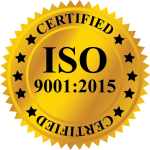Introduction
In today’s competitive job market, healthcare facilities face increasing challenges in attracting and retaining top talent. One of the most effective strategies to address these challenges is employer branding. A strong employer brand not only draws skilled professionals but also fosters loyalty, enhances workplace culture, and improves patient care. In this blog, we’ll explore how employer branding plays a crucial role in healthcare recruitment and provide actionable strategies to strengthen it.
What Is Employer Branding?
Employer branding refers to an organization’s reputation as a workplace. It encompasses everything from workplace culture and employee benefits to career growth opportunities and public perception. A strong employer brand makes an organization desirable to both current employees and potential hires.
Why Employer Branding Matters in Healthcare Recruitment
1. Attracting Top Talent
Healthcare professionals have multiple job opportunities at their disposal. A well-established employer brand can differentiate a healthcare organization from its competitors. Hospitals and clinics that highlight their positive work culture, competitive salaries, and employee support programs are more likely to attract skilled professionals.
2. Reducing Turnover Rates
A strong employer brand fosters a sense of belonging and job satisfaction. When employees feel valued and aligned with an organization’s values, they are less likely to leave. Given the high turnover rates in the healthcare industry, investing in a solid employer brand can significantly improve retention.
3. Enhancing Patient Care
Happy employees lead to better patient outcomes. When healthcare workers feel appreciated and motivated, they provide higher-quality care. Employer branding contributes to an engaged workforce, which directly impacts patient satisfaction and overall hospital ratings.
4. Strengthening Reputation in the Industry
A well-regarded healthcare organization attracts not only job seekers but also partnerships and collaborations. A strong reputation can lead to better funding, research opportunities, and affiliations with prestigious medical institutions.
Key Components of a Strong Employer Brand
1. Clear Mission and Values
Healthcare professionals want to work for organizations that align with their values. A clear mission statement that emphasizes patient care, employee well-being, and professional growth can resonate deeply with potential candidates.
2. Positive Workplace Culture
A supportive and inclusive workplace culture is essential. Encouraging collaboration, diversity, and work-life balance can enhance employee satisfaction and create a more appealing work environment.
3. Competitive Compensation and Benefits
Salary is a significant factor in recruitment, but additional benefits such as flexible schedules, wellness programs, and professional development opportunities also play a crucial role.
4. Strong Online Presence
Healthcare organizations must maintain a strong presence on job review sites like Glassdoor, LinkedIn, and Indeed. Positive employee testimonials, engaging social media content, and an informative careers page can greatly influence job seekers.
5. Employee Advocacy
Employees are the best brand ambassadors. Encouraging staff to share their experiences, success stories, and workplace highlights on social media can significantly enhance an organization’s employer brand.
Strategies to Improve Employer Branding in Healthcare Recruitment
1. Create a Compelling Employee Value Proposition (EVP)
An EVP defines what makes an organization a great place to work. It should highlight unique benefits, growth opportunities, and workplace culture. Communicating this clearly in job postings and recruitment materials can attract top talent.
2. Leverage Social Media and Digital Marketing
Platforms like LinkedIn, Twitter, and Instagram are valuable tools for showcasing workplace culture. Posting employee testimonials, behind-the-scenes content, and company achievements can boost employer branding.
3. Prioritize Employee Well-Being
Providing mental health support, offering career development programs, and ensuring a positive work-life balance can make an organization stand out. Healthcare professionals are more likely to choose employers that genuinely care about their well-being.
4. Optimize the Hiring and Onboarding Process
A seamless and transparent recruitment process enhances an employer’s reputation. Simplifying applications, providing timely feedback, and ensuring a smooth onboarding experience can leave a positive impression on candidates.
5. Encourage and Act on Employee Feedback
Organizations that listen to their employees and implement meaningful changes foster a more engaged workforce. Regular employee satisfaction surveys and open communication channels can strengthen employer branding.
Conclusion
In an industry where talent shortages and high turnover rates are prevalent, employer branding is more important than ever. A strong employer brand not only attracts and retains top healthcare professionals but also enhances patient care and strengthens an organization’s reputation. By focusing on workplace culture, employee well-being, and digital presence, healthcare organizations can create a compelling employer brand that stands out in a competitive market. Investing in employer branding is not just a recruitment strategy—it’s a long-term commitment to excellence in healthcare.










